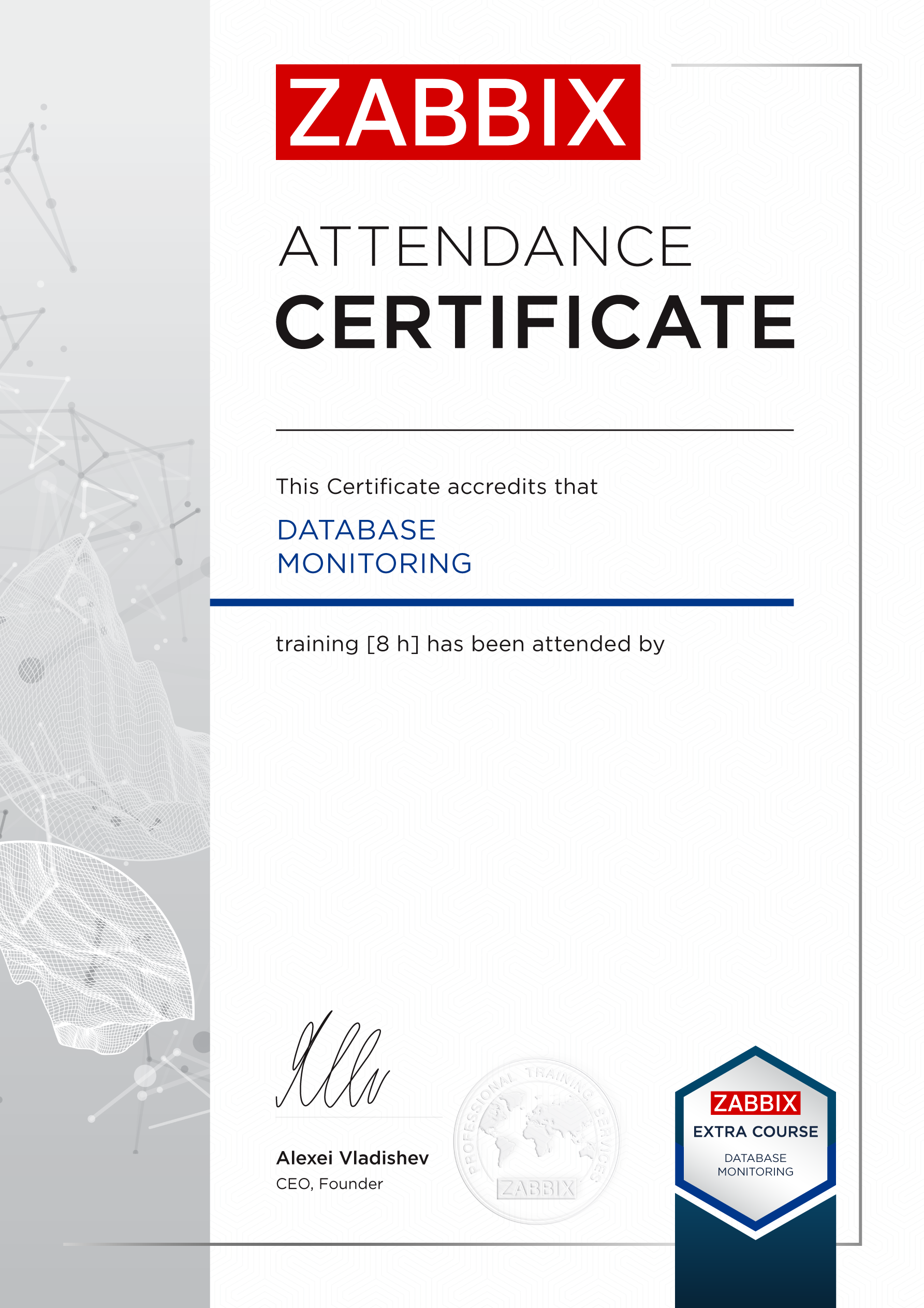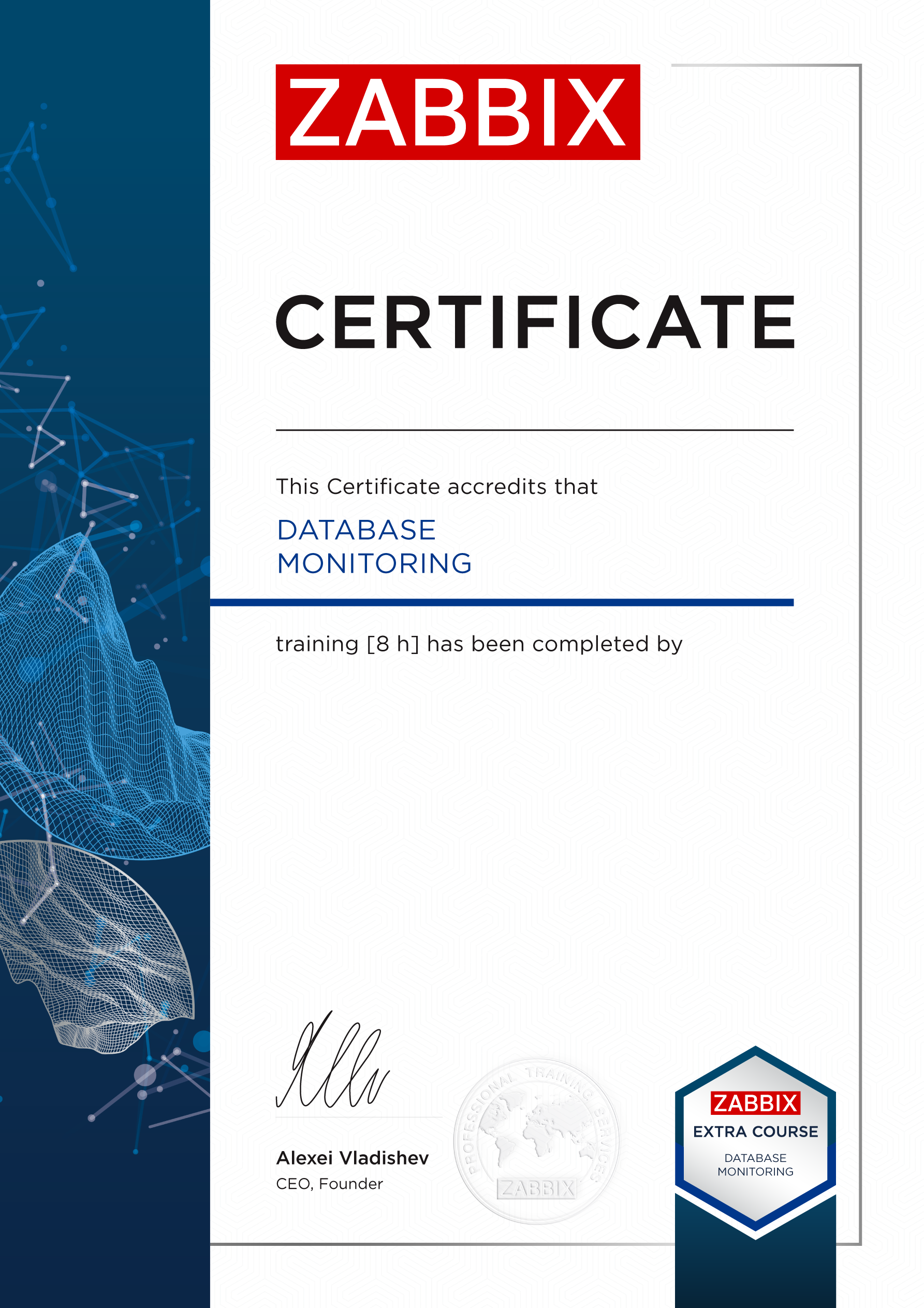Database Monitoring
The goal of this course is to fully explain DBMS monitoring concepts, approaches, and to provide practical knowledge of configuring DBMS monitoring with Zabbix. The course covers various Zabbix native approaches to collect DBMS performance metrics and collect DBMS-related data using Zabbix Agent 2, ODBC and API requests. The course also covers optimizing DBMS data collection by introducing dependent Low-level discovery (LLD) for minimal DBMS performance impact.
During the course, students will practice configuring DBMS monitoring for such DBMS as MySQL, MariaDB, PostgreSQL, MongoDB, Redis, InfluxDB and Elasticsearch
Information about the course
| Designed for the product: | Zabbix 7.0 |
|---|---|
| Group size: | Small groups (up to 10 students) |
| Requirements: | None |
| Type of exam: | 30 min, theoretical |
| Course language: | English or Czech |
| Available online: | Yes |
| Course length: | 1 DAY |
| Course price: | € 490 excluding VAT |
Course content
Day 1
- Introduction to various DBMS
- Database monitoring basics
- Database monitoring using ODBC
- Additional database monitoring methods
- Database monitoring using Zabbix agent 2
- Database monitoring with dependent LLD
- Database monitoring using encryption
- Performance impact

Tomáš Heřmánek
CEO & Zabbix Certified TrainerAdditional information
Certificate
- Each participant will receive a certificate of course completion.
- Upon successfully passing the exam, you will obtain the Database Monitoring certificate.

Course certificates and gifts
For all attendees

For passing the exam

Acquired skills and knowledge
Automatic discovery and collection of database performance metrics
from various database engines representing the most popular developers
An in-depth look at how DBMS metrics are exposed and collected
and knowledge on how to troubleshoot DBMS data collection issues
Optimizing data collection from databases
by implementing custom queries and bulk data collection
Collecting custom data from both SQL and NoSQL databases
by using different Zabbix data collection approaches
Outcomes
Organizational impact
During this course attendees will learn how to monitor key database metrics and various internal parameters to ensure stable DBMS performance and gain new insights for capacity planning, troubleshooting and more.
Individual impact
By attending this course, attendees will not only familiarize themselves with how monitoring can be extended to various DBMS, but also learn how to automate database metric discovery and optimize DBMS data collection for both technical and business-oriented goals.
